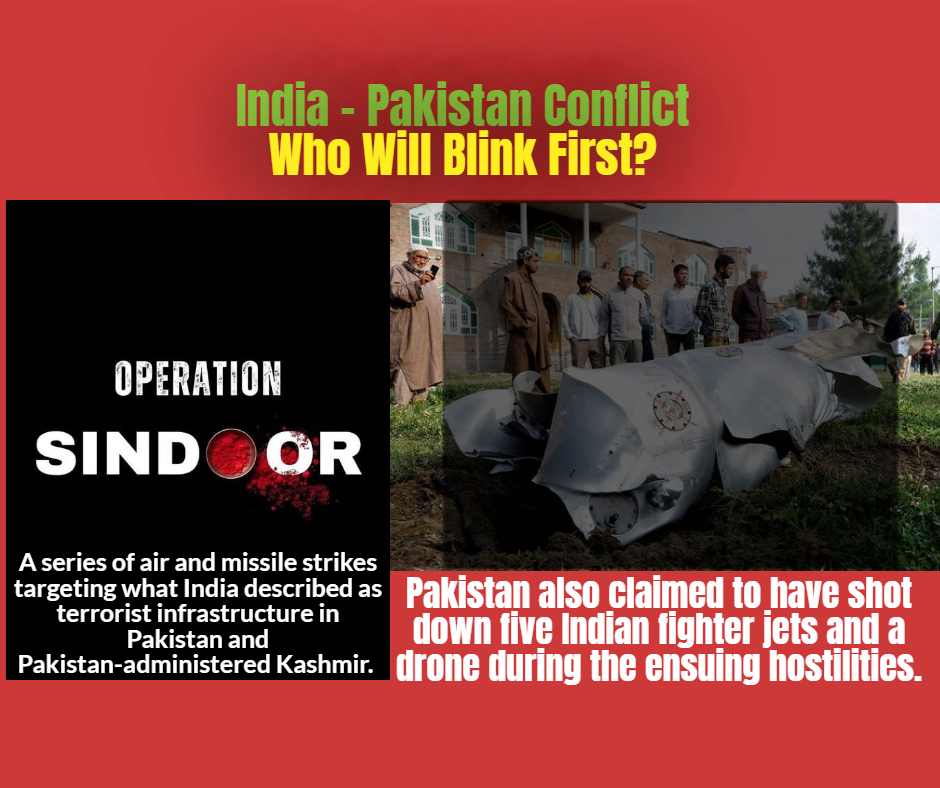
India - Pakistan Conflict: Who Will Blink First?
Jafar Bhamji
5-09-2025
 Email
to a friend Email
to a friend
 Post
a comment Post
a comment
 Print Print
What once appeared to be another choreographed episode of cross-border tension — a familiar tit-for-tat routine staged for domestic political gains — has now dangerously escalated beyond precedent into a significant military confrontation.
The recent hostilities were triggered by a deadly attack in Indian-administered Kashmir, which India attributed to Pakistan—a claim Pakistan denies. In response, India launched "Operation Sindoor," targeting alleged terrorist infrastructure in Pakistan and Pakistan-occupied Kashmir .
Pakistani politicians who once maintained cordial ties with Prime Minister Modi and segments of the Indian establishment had been strategically outmaneuvered. This time, India appeared to have come with a long-term military and ideological agenda, signaling intentions that far exceed prior skirmishes.
For Modi, whose political vision includes the controversial concept of "Akhand Bharat," a concept advocating for a unified Indian subcontinent, the timing is pivotal. With global attention absorbed by the conflict in Ukraine Internationally, the response has been cautious. U.S. Vice President JD Vance stated that the conflict is "none of our business," indicating a reluctance for direct intervention. Meanwhile, India had briefed several countries, including the U.S., UK, Saudi Arabia, UAE, and Russia, about its military operations. India saw an open window and triggered a war that is not showing any intentions to de escalate.
India’s arsenal — bolstered by French Rafales and Russian S-400 systems — provides not only tactical advantage but also a stage for real-world performance evaluation of these high-end weapons. For Washington, this conflict offers an opportunity to study both allies and adversaries in a live theater without direct involvement.
Meanwhile, The International Monetary Fund (IMF) recently approved a $1 billion loan disbursement to Pakistan, despite concerns about the country's economic stability and the potential misuse of funds amid escalating military tensions, coinciding with a visible military reaction from Pakistan — has raised suspicions that the Pakistani army is playing a reluctant but pressured role in a broader geopolitical game.
The situation has intensified with both nations engaging in artillery exchanges, drone assaults, and airstrikes, leading to civilian casualties on both sides. As the situation unfolds, the risk of further escalation remains high. Both nations possess nuclear capabilities, and continued hostilities could have catastrophic consequences.
The war, it seems, is one Pakistan did not seek — but one that other global and regional actors appear more than willing to tolerate or even support.
At this juncture, any hesitation from Pakistan could lead to irreversible consequences. This is a defining moment — not only for the military and political leadership but for the country's national resolve.
It is imperative for regional and global stakeholders to encourage dialogue and de-escalation to prevent a full-scale war.
|